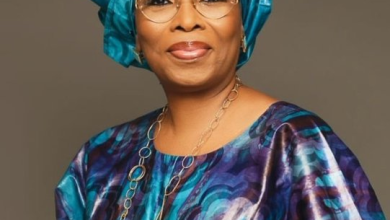
|
Getting your Trinity Audio player ready...
|
On August 21, 2024, a wave of apprehension swept through Nigeria’s feminist spaces as news broke of a bill to repeal the VAPP Act, which has passed its second hearing. Sponsored by Senator Jibrin Isah, representing Kogi East, this development sent shockwaves through communities dedicated to protecting the rights of vulnerable individuals, particularly women and children. To understand the gravity of this situation, we must first explore what the VAPP Act represents and why its potential repeal is cause for significant concern.
The Violence Against Persons Prohibition Act, commonly known as the VAPP Act, is a landmark piece of legislation enacted in 2015. It stands as a crucial step in Nigeria’s efforts to combat various forms of violence and discrimination. This comprehensive law prohibits all forms of violence against persons in both private and public spheres, providing maximum protection and remedies for victims while ensuring appropriate punishment for offenders.
Prior to the VAPP Act, Nigeria’s legal framework lacked a unified and comprehensive approach to addressing violence, particularly in the domestic sphere and against marginalised groups, which are predominantly women and girls. The Act filled this critical gap by providing a holistic legal framework that not only criminalises various forms of violence but also establishes mechanisms for victim support and rehabilitation.
One of the most significant improvements brought about by the VAPP Act is its expanded and more nuanced definition of rape. Before this legislation, the legal definition of rape in Nigeria was narrow and outdated, often described as forceful carnal knowledge of a girl or woman by a man, often failing to capture the full spectrum of sexual violence. The VAPP Act broadens this definition considerably, recognising that rape can be committed against any person, regardless of gender, can involve the penetration of any of the body’s orifices, and can the use of objects. This inclusive definition acknowledges that sexual violence is not limited to a specific act or gender, marking a crucial step forward in addressing the complexities of sexual assault.
Moreover, the Act provides a clearer understanding of consent, which is fundamental in cases of sexual violence. It explicitly states that agreement under rape drugs, force, threat, intimidation, fear of harm, or fraudulent representation does not constitute consent. This clarification is important in a society where cultural norms and power dynamics often complicate issues of consent. By providing this clear definition, the Act empowers victims and offers a stronger legal basis for prosecuting perpetrators who exploit vulnerabilities or use coercion.
The VAPP Act also takes an antagonistic stance against female genital mutilation (FGM), a practice that has long been a concern for feminists in Nigeria. The Act explicitly prohibits FGM, defining it as a form of violence against women and girls. This prohibition is significant because it brings a traditionally private and culturally sensitive issue into the public legal sphere; remember, Nigeria accounts for 20% of the global FGM victims. By criminalising FGM, the Act not only provides legal protection for victims but also sends a powerful message about the unacceptability of this practice in modern Nigerian society.
Another significant aspect of the VAPP Act is its recognition and criminalisation of stalking. Before this legislation, stalking was not explicitly addressed in Nigerian law, leaving many victims without clear legal protection. The Act defines stalking broadly, including both physical following and unwanted communication or contact that causes fear or emotional distress. This recognition of stalking as a form of violence is particularly important for women, who are often the primary targets of such behaviour.
Child abuse is another area where the VAPP Act takes significant action. The Act provides a comprehensive framework for protecting children from various forms of abuse, including physical, sexual, and emotional abuse. It recognises the particular vulnerability of children and imposes severe penalties on those who exploit or harm them. The Act’s provisions on child abuse are notable for their breadth, covering not only direct acts of violence but also neglect and exploitation.
Given the crucial role the VAPP Act plays in protecting women and girls, its potential repeal would have far-reaching and devastating consequences. If repealed, Nigeria would regress to a state where many forms of violence affecting women and girls would lack adequate legal recognition and protection.
The repeal of the VAPP Act would remove the expanded definition of rape, potentially leaving many victims of sexual violence without legal recourse. The nuanced understanding of consent provided by the Act would be lost, making it more challenging to prosecute cases involving coercion or exploitation. The explicit prohibition of FGM would be lifted, potentially leading to a resurgence of this harmful practice.
Without the VAPP Act, stalking victims would once again find themselves with limited legal protection against this form of psychological abuse. Children would lose a significant layer of legal protection against various forms of abuse and exploitation. The comprehensive support systems for victims mandated by the Act would no longer be legally required, potentially leaving many survivors without access to crucial medical, psychological, and legal aid.
Furthermore, repealing the VAPP Act would send a troubling message about Nigeria’s commitment to protecting its most vulnerable citizens. It could signal a retreat from the progress made in addressing gender-based violence and child abuse, potentially emboldening perpetrators and further silencing victims.
In light of these potential consequences, it is crucial that all stakeholders – citizens, civil society organisations, and policymakers – stand firmly against any attempts to repeal or weaken the VAPP Act. Instead of considering repeal, efforts should be focused on strengthening the implementation of the Act, including increased funding for support services, enhanced training for law enforcement and judicial officers, and continued public awareness campaigns about the rights and protections it provides.
The VAPP Act represents more than just legislation; it embodies a commitment to creating a safer, more just society for all Nigerians, particularly its most vulnerable members. Its repeal would not only be a significant legal setback but a moral one as well. As such, it is imperative that we recognise the value of the VAPP Act and work tirelessly to preserve and strengthen it, ensuring that Nigeria continues to move forward in its fight against violence and discrimination and to achieve a more just and equitable nation.






